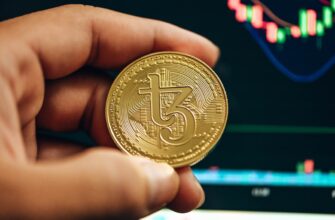- What Is Cryptocurrency Money?
- How Cryptocurrency Functions as Real Money
- Top 5 Benefits of Cryptocurrency Money
- Practical Uses of Cryptocurrency in Daily Life
- Navigating Cryptocurrency Risks
- Getting Started with Cryptocurrency Money
- Future of Cryptocurrency Money
- Frequently Asked Questions
- Is cryptocurrency real money?
- How do I convert cryptocurrency to cash?
- What makes cryptocurrency valuable?
- Can cryptocurrency replace traditional money?
- How are cryptocurrencies taxed?
What Is Cryptocurrency Money?
Cryptocurrency money represents a digital revolution in how we perceive and use currency. Unlike traditional fiat money issued by governments, cryptocurrency operates on decentralized blockchain technology. This peer-to-peer electronic cash system enables direct transactions without intermediaries like banks. Bitcoin’s creation in 2009 pioneered this concept, proving digital assets could hold monetary value through cryptographic security and distributed consensus.
How Cryptocurrency Functions as Real Money
Cryptocurrency fulfills the three fundamental roles of money:
- Medium of exchange: Used for purchasing goods/services at over 15,000 global businesses including Microsoft and Overstock
- Store of value: Assets like Bitcoin have appreciated over 200% annually since inception
- Unit of account: Denominations (e.g., BTC, ETH) measure economic value in digital ecosystems
Blockchain technology ensures security through:
- Immutable public ledgers recording all transactions
- Consensus mechanisms (Proof-of-Work/Proof-of-Stake)
- Cryptographic hashing preventing tampering
Top 5 Benefits of Cryptocurrency Money
- Financial Inclusion: 1.7 billion unbanked adults can access financial services via smartphone
- Reduced Fees: Cross-border transactions cost 80% less than traditional remittance services
- Decentralization: No single entity controls the network, reducing systemic risk
- Transparency: All transactions are publicly verifiable on blockchain explorers
- Inflation Resistance: Fixed supplies (e.g., Bitcoin’s 21 million cap) protect against devaluation
Practical Uses of Cryptocurrency in Daily Life
Cryptocurrency money has evolved beyond speculation into real-world utility:
- Retail Purchases: Major retailers like Newegg and AMC Theatres accept crypto payments
- Remittances: Platforms like BitPesa enable instant cross-border transfers
- DeFi Services: Earn interest (up to 10% APY) through decentralized lending protocols
- NFT Marketplaces: Digital collectibles traded using Ethereum and Solana
- Gaming Economies: Play-to-earn games like Axie Infinity create income opportunities
Navigating Cryptocurrency Risks
While promising, cryptocurrency money carries unique challenges:
- Volatility: Prices can fluctuate 20%+ in 24 hours
- Regulatory Uncertainty: Varying global regulations impact legality
- Security Vulnerabilities: $3.8 billion lost to hacks in 2022 (Chainalysis report)
- Scalability Issues: Network congestion causes slow transactions during peak times
- Environmental Concerns: Bitcoin mining consumes ~150 TWh annually – more than Argentina
- Choose a reputable exchange (Coinbase, Binance, or Kraken)
- Complete KYC verification
- Fund your account via bank transfer or card
- Purchase starter cryptocurrencies (BTC/ETH)
- Transfer funds to a secure wallet (Hardware > Software)
- Begin with small transactions to understand the process
- Central Bank Digital Currencies (CBDCs) from 114 countries in development
- Layer-2 solutions (Lightning Network) enabling instant micropayments
- Regulatory frameworks improving investor protection
- Enterprise adoption through blockchain payment processors
- Integration with IoT devices for machine-to-machine transactions
Getting Started with Cryptocurrency Money
Follow these steps to enter the crypto economy:
Future of Cryptocurrency Money
Emerging trends shaping digital money’s evolution:
Frequently Asked Questions
Is cryptocurrency real money?
Yes, cryptocurrency functions as legitimate money through its acceptance as payment, store of value, and unit of account. Legal tender status varies by jurisdiction.
How do I convert cryptocurrency to cash?
Use cryptocurrency exchanges, peer-to-peer platforms, or Bitcoin ATMs. Most exchanges allow direct bank transfers after selling digital assets.
What makes cryptocurrency valuable?
Value derives from scarcity (limited supply), utility (transactional use), network adoption, and market demand. Unlike fiat, most cryptos have predetermined emission schedules.
Can cryptocurrency replace traditional money?
While unlikely to fully replace fiat soon, cryptocurrency complements traditional finance by offering faster cross-border payments, programmable money, and financial inclusion solutions.
How are cryptocurrencies taxed?
Most countries treat crypto as property. Transactions trigger capital gains taxes. Always consult local regulations – the U.S. IRS requires crypto tax reporting.








